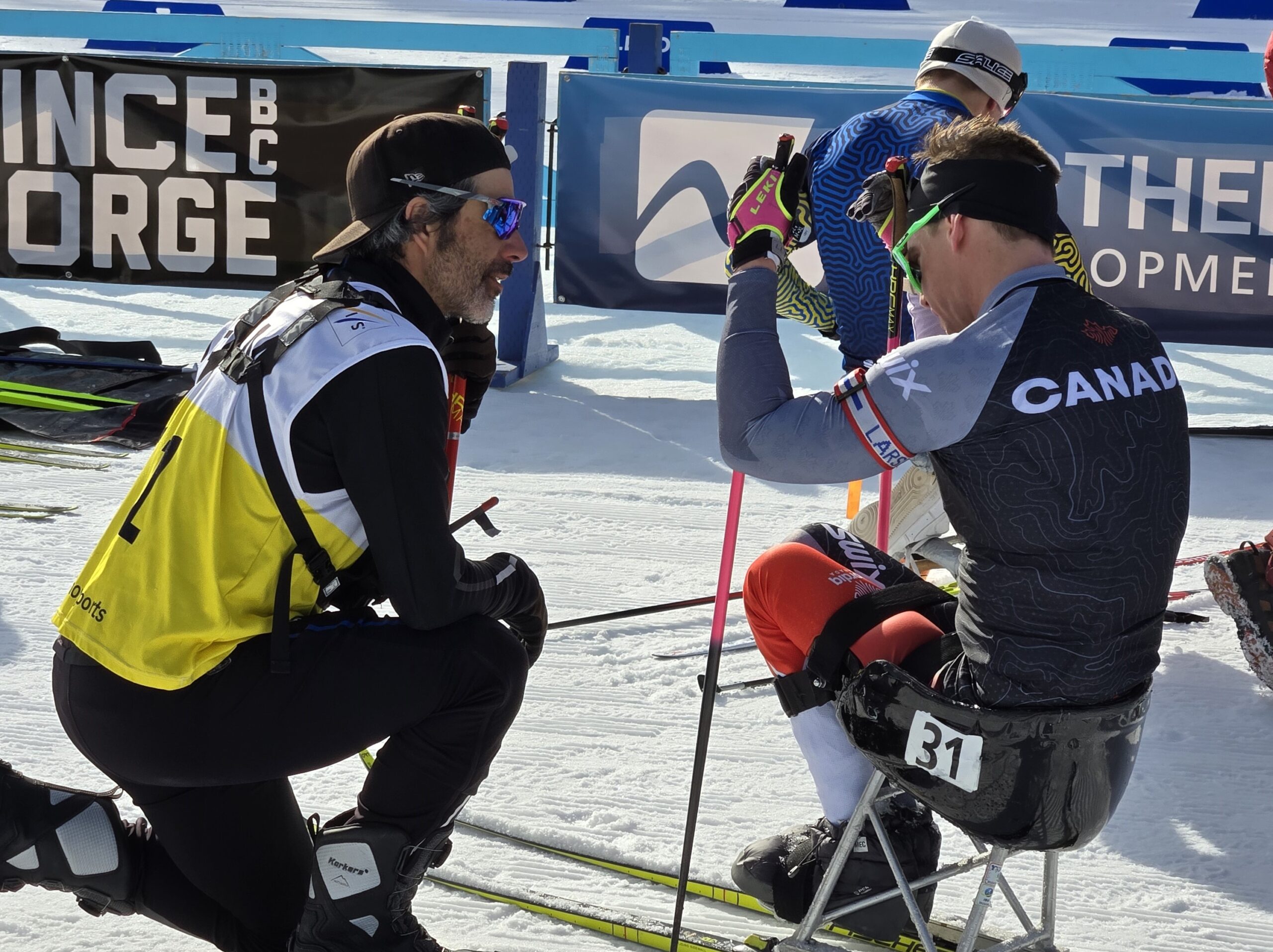Brian McKeever gets new lease on life as head coach of Canada’s powerful Para nordic team
Canada’s greatest winter Paralympian meets new challenges
Canada’s greatest winter Paralympian meets new challenges

PRINCE GEORGE, B.C. – Canada’s most successful winter Paralympian Brian McKeever is already completing his second season as Canada’s Para nordic national team coach and he admits it is more stressful than being a superstar athlete.
‘’When you’re an athlete you only worry about one person, now it’s worrying about all the athletes,’’ said McKeever after Tuesday’s training at the Para nordic World Cup Final. ‘’It’s also very rewarding. To see our athletes learn is the best part.”
As an athlete competing in the visually impaired category, McKeever competed at six Paralympic Winter Games (2002-2022) and earned a Canadian record 20 medals with 16 gold, two silver and two bronze.
He retired after the Beijing Games and in July of that year was named the national team coach.
‘’It’s definitely been a steep learning curve,’’ said McKeever, 45. ‘’ The technical, tactical pieces are well in my wheelhouse but there is more behind the scenes with the bigger picture of a large program.
‘’That was all new to me.’’
Some of the current national team members are former teammates of McKeever such as 12-time Paralympic medallist Mark Arendz. There have been many stories in pro sport of tense issues between a coach and former teammates but in this case the transition has been smooth.
‘’Last year was a growing year for all of us,’’ admitted McKeever. ‘’This year has been, I hope, smoother for everyone. We have done good work but I have a different style. And it’s also about me learning how much people understand my language. So building communication has been a key.’’
For veteran racers like Arendz, McKeever says he is more of a soundboard. Arendz appreciates the confidence and understanding his former teammate brings.
‘’At first we just had to recognize that the roles had changed,’’ said Arendz. ‘’We still respect the friendship we developed as teammates and now that is developing into a coach-athlete relationship.
‘’It’s really neat to get insight into what worked for him as an athlete and apply those elements to the entire team.’’
Despite all the success, McKeever says it’s important to have a patient approach. Athletes like sit skier Derek Zaplotinsky is now achieving medal results after nearly a decade on the national team.
‘’We’re kind of in race school,’’ said McKeever. ‘’We’re just trying new things, new tactics and trying to read courses in different ways. We can only get our 100% whatever that might be on that day. And it’s not necessarily about wins and losses.
‘’It’s just about having a plan, executing it well and then seeing where we can make that better for the next race.’’
For an athlete like visually impaired skier Jesse Bachinsky, also climbing the ranks, having a coach like McKeever who raced in the same category is immeasurable.
“He is an incredible athlete, and an amazing person,’’ said Bachinsky. ‘’It’s been a privilege to race with him and to have him coach me. His depth of knowledge of this sport is unparalleled.”
The Canadian Para nordic team is the blueprint for Canada in winter Paralympic sport. McKeever was the sport’s first big star, and the development program has blossomed as racers like Natalie Wilkie, Colllin Cameron and Brittany Hudak have been collecting Paralympic and world championship medals for the past several seasons.
In Beijing the team won 14 medals and in South Korea in 2018, 16, both times more than half of Canada’s total medal count.
McKeever says the door is open for people with a disability to get into the sport.
‘’We are always looking for the next generation,’’ he said. ‘’ When people get exposure to it, they realize how much fun it can be. A lot of people said when they come into our sport, they say it feels like freedom, to get moving and enjoy nature in different ways.’’
And who knows, with a lot of hard work, maybe get coached by a living legend.
"*" indicates required fields